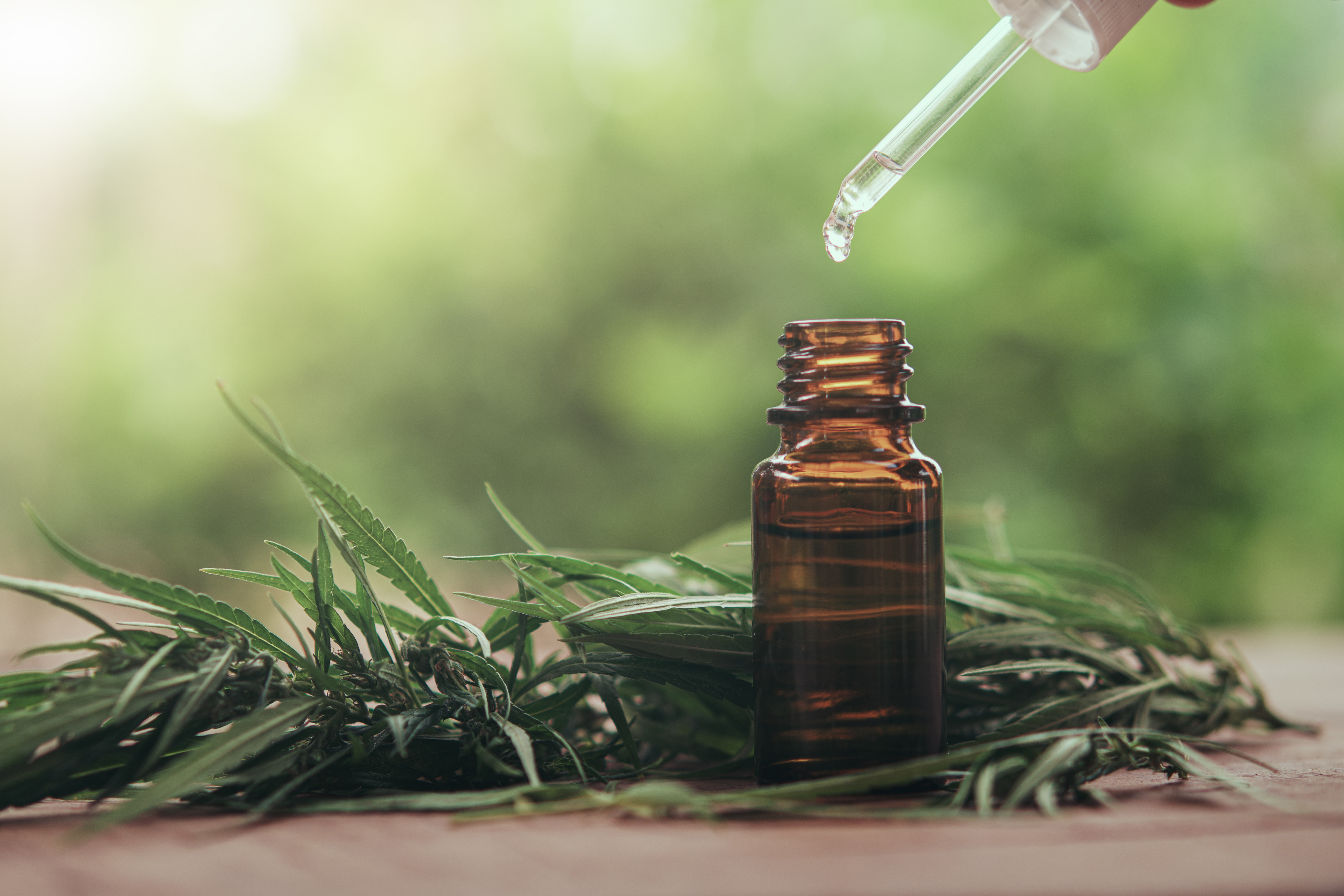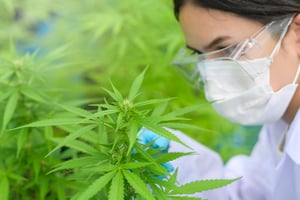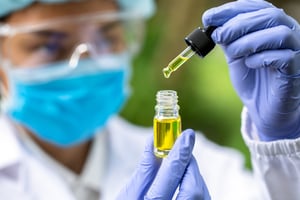Broughton's Regulatory Operations Manager, Emily Saunders discusses why lengthy delays in the CBD approval process are causing frustration in the industry.
Why validation of CBD products is more crucial than ever
Cannabinoids

Sep 27, 2024 | Published by Cristelle Santos
Cannabinoids
Since the use of CBD officially became legal in the UK in 2017, followed by medicinal cannabis in 2018, demand has risen considerably. In the year up until August 2023, over 6 million people in the UK had tried a CBD product, while approximately 1.3 million use the substance regularly[1]. Here Cristelle Santos, Consultant Toxicologist at cannabis and CBD analytical testing provider and scientific consultancy Broughton, explores the state of the sector.
CBD products in the UK have become more commonplace in wellness stores and supermarkets and are readily accessible online. Products range from gummies, to sprays and even female hygiene products. In some cases, there are shops set up specifically for purchasing CBD-based products.
As of 2021, those wishing to sell or import CBD products are required to apply for a Novel Foods license under the Novel Foods Regulation, which states products must be fit for human consumption and not mislead consumers about health effects. Despite this, there appears to be a lax in safety with CBD for recreational use. Though both the European Food Standards Agency (EFSA) and UK’s Food Standards Agency (FSA) allow products on the market, there are areas that require further testing — including gastrointestinal toxicity, drug interaction, and neurological effects. We have already seen an uncertain environment develop in the UK. Last year, the FSA downgraded the recommended daily intake of CBD from 70 mg to 10 mg, citing possible links to liver and thyroid issues[2]. However, products are still on the market that exceed this level.
Elsewhere, women’s health products such as CBD-infused tampons are now seen on the market. Though studies have taken place, such as one in the Journal of Endometriosis and Uterine Disorders, published in March 2024, it highlighted the small sample size of 63 and suggested areas for improvement[3]. Though this study concluded positive results of CBD-infused tampons in a placebo-effected trial, further studies would be welcome.
Medical cannabis
Unlike CBD, which is often marketed as a wellness product, medicinal cannabis is subject to the stringent regulations as covered by regulatory bodies including Medicines and Healthcare products Regulatory Agency (MHRA), Food and Drug Administration (FDA) and European Medicines Agency (EMA) required to bring new medical treatments to market. Even when it can be prescribed, it’s rare that is. In exceptional cases, the NHS will prescribe it for rare forms of epilepsy, for Multiple Sclerosis if other treatments aren’t working and for treating chemotherapy side effects.
Both for medical and wellness use cases, it’s important that any cannabis-based product is subject to rigorous testing. Partnering with an expert consultant from the outset can ensure that your product meets high standards and isn’t subject to any ambiguity.
Working with a consultancy like Broughton from the outset can help you develop safe, effective cannabis-based products. To learn more about Broughton’s CBD testing capabilities, click here.
[1] https://vitalitycbd.co.uk/pages/6-million-uk-cbd-users
[2] https://www.theguardian.com/society/2023/oct/12/uk-food-regulators-slash-recommended-dose-of-cbd-over-health-risks
[3] https://www.sciencedirect.com/science/article/pii/S2949838423000452#sec0070


